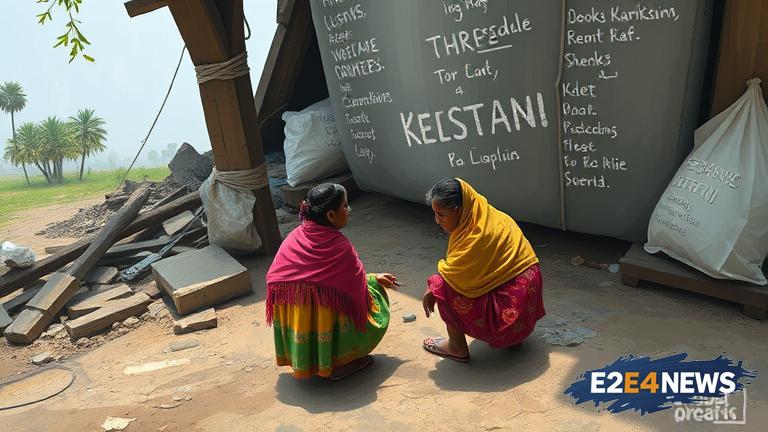The Chief Minister of Jammu and Kashmir recently made a statement that social welfare schemes are not favors or acts of generosity, but rather a fundamental right of the citizens. This statement has sparked a debate about the role of the government in providing social welfare schemes to its citizens. The Chief Minister emphasized that the government has a responsibility to provide basic amenities and services to its citizens, and that social welfare schemes are an essential part of this responsibility. The government has launched several social welfare schemes in recent years, aimed at improving the lives of the citizens, particularly the poor and vulnerable sections of the society. These schemes include programs such as old-age pensions, scholarships for students, and financial assistance for women and minorities. However, despite the government’s efforts, many citizens feel that the schemes are not effective in addressing their needs. Some critics argue that the schemes are poorly implemented, and that the benefits do not reach the intended beneficiaries. Others argue that the schemes are not sustainable in the long run, and that the government needs to focus on creating jobs and stimulating economic growth rather than relying on handouts. The Chief Minister’s statement has also been seen as an attempt to shift the focus from the government’s responsibilities to the citizens’ rights. By emphasizing that social welfare schemes are a fundamental right, the Chief Minister is highlighting the importance of citizens’ entitlements and the government’s duty to provide them. This approach is seen as a welcome change from the traditional patronage-based approach, where the government is seen as a benefactor and the citizens as recipients of its generosity. The statement has also been praised for its emphasis on the importance of social welfare schemes in reducing poverty and inequality. However, some critics have argued that the statement is mere rhetoric, and that the government needs to take concrete actions to address the issues faced by the citizens. The government has announced plans to increase the budget for social welfare schemes and to improve their implementation. However, it remains to be seen whether these plans will be effective in addressing the needs of the citizens. The debate around social welfare schemes is not unique to Jammu and Kashmir, and is a reflection of the broader discussions around the role of the government in providing social services. Many countries around the world are grappling with the challenges of providing effective social welfare schemes, and the experience of Jammu and Kashmir can provide valuable lessons for other governments. In conclusion, the Chief Minister’s statement has highlighted the importance of social welfare schemes as a fundamental right of the citizens. While there are challenges in implementing these schemes, the government’s emphasis on citizens’ entitlements and its duty to provide them is a welcome change. The government needs to take concrete actions to address the issues faced by the citizens, and to ensure that the social welfare schemes are effective in reducing poverty and inequality. The citizens of Jammu and Kashmir have a right to expect effective social welfare schemes, and it is the government’s responsibility to deliver them. The government’s plans to increase the budget for social welfare schemes and to improve their implementation are a step in the right direction. However, it is crucial that the government follows through on its commitments and ensures that the schemes are implemented effectively. The citizens of Jammu and Kashmir deserve nothing less. The government’s approach to social welfare schemes is a reflection of its broader vision for the state’s development. By emphasizing the importance of social welfare schemes, the government is highlighting its commitment to reducing poverty and inequality. The government’s plans to improve the implementation of social welfare schemes are also a reflection of its commitment to good governance. The citizens of Jammu and Kashmir have a right to expect transparency and accountability in the implementation of social welfare schemes, and the government needs to ensure that these principles are upheld. In the coming months, the government will face several challenges in implementing its social welfare schemes. The government will need to navigate the complexities of bureaucracy and ensure that the schemes are implemented effectively. The government will also need to address the concerns of critics who argue that the schemes are not sustainable in the long run. However, with a clear vision and a commitment to good governance, the government can overcome these challenges and ensure that the social welfare schemes are effective in reducing poverty and inequality. The citizens of Jammu and Kashmir are watching the government’s actions closely, and it is crucial that the government delivers on its commitments. The government’s approach to social welfare schemes is a test of its credibility, and it is essential that the government passes this test. The government’s commitment to social welfare schemes is a reflection of its broader commitment to the welfare of its citizens. By emphasizing the importance of social welfare schemes, the government is highlighting its commitment to creating a more just and equitable society. The government’s plans to improve the implementation of social welfare schemes are a step in the right direction, and it is crucial that the government follows through on its commitments. The citizens of Jammu and Kashmir deserve a government that is committed to their welfare, and it is essential that the government delivers on its promises.
